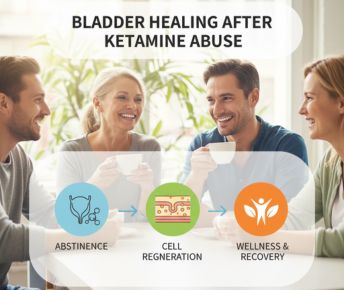In some areas of India, mental health facilities use force to make clients participate in substance use disorder (SUD) treatment. However, forced participation can cause additional mental health issues and worsen symptoms of existing conditions. According to the Indian Journal of Psychiatry, "There is no explicit prohibition of forced interventions." Some psychiatric hospitals and facilities frequently practice involuntary treatment of adults with substance use or mental health disorders. Samarpan Recovery is one of the top rehabilitation centres in Mumbai and prioritizes client autonomy. The facility only offers treatments to individuals who choose voluntary admission.
What Is Involuntary Admission?
Involuntary admission can include being forcibly moved to a treatment facility or coerced into joining a program. Individuals with SUD or co-occurring conditions may be given an ultimatum by their family or the treatment facility, forcing them to go through the admissions process. In many cases, the goal is to help people become functional members of society or temporarily remove them from the community to reduce the risk to themselves or others. However, the methods used for involuntary admission often make the situation worse.
Admissions for substance misuse and mental health issues should be voluntary and under the guidance of a trained clinical team.
Voluntary admission generally involves the following:
- Informed consent
- Family support
- Client collaboration with the care team
Clients are assessed, diagnosed, and educated about the details of their condition. In addition, clients can make choices about the development of their treatment and methods of care. According to the Indian Journal of Medical Research, “Informed consent is about giving a patient the special knowledge that makes him/her competent to [make] decisions in a more informed way.” In addition, the clinician team is responsible for disclosing information and assisting the client in choosing an effective treatment plan.
The Importance of Client Autonomy
Clients are more likely to follow through with their treatment goals if they actively participate in their recovery. However, many clients may feel uncertain about voicing their concerns or giving an opinion. In many areas of India, primary physicians, psychiatrists, and other medical professionals direct all areas of treatment without client collaboration.
Individuals who have previously undergone treatment at a facility that does not prioritize client autonomy may have trouble expressing their needs and wants. Samarpan Recovery can help them find a voice and improve their self-confidence.
Client autonomy during rehabilitation ensures the following:
- Ethical and compassionate treatment during rehabilitation
- Informed consent regarding personalized treatment
- Client participation in treatment planning and continuing care
According to Frontiers in Psychiatry, "Understanding the relationship between autonomy and mental illness is potentially valuable" and an essential part of treatment. In fact, “The disturbance of autonomy, for instance, could impact the risk of onset, the severity of symptoms, as well as the maintenance of mental disorders.” The clinical team at Samarpan Recovery provides the best care in India and understands the importance of allowing clients to maintain autonomy and regain independence.
Samarpan Recovery Only Accepts Voluntary Admission
Samarpan Recovery only accepts individuals who voluntarily admit themselves to treatment to ensure ethical treatment. Family consent may be necessary in cases involving complex co-occurring mental health issues. However, clients are never forced to participate in any form of treatment.
Voluntary admission allows clients to gain confidence in their ability to positively change their circumstances. Many people with SUD may feel out of control in every other aspect of their lives. Choosing their own treatment can improve self-efficacy and feelings of self-worth. Samarpan Recovery collaborates with each client to determine what level of support they need and how best to address their condition.
Building Trust Through Voluntary Admission
Clients who voluntarily admit themselves to treatment start from a more empowered place compared to people who are forced to join a program. In addition, clients are more likely to trust their care team if they are not physically or medically detained.
Treatment involves developing skills and navigating new social situations. Building trust is essential to the treatment process because it allows clients to feel more comfortable and safe. Clients who trust their care team often experience less severe symptoms and recover more quickly.
Client Engagement in Treatment and Continuing Care
Treatment will not succeed long-term if clients cannot engage in their own recovery. According to the Journal of Substance Use and Addiction Treatment, "[C]lients ‘engaging,’ or actively participating in treatment is a critical step leading to better outcomes." The clinical team at Samarpan Recovery collaborates with clients and their families to find positive ways to increase engagement. Peers also play an essential role in motivating and inspiring changes in individuals with substance use disorder and co-occurring conditions.
Samarpan Recovery has a community environment that encourages clients to actively participate in their own recovery, starting with voluntary admission. The Mumbai-based facility is one of the top rehabilitation centres in the country and provides exceptional service and high-quality treatment programs.
Individuals who struggle with addiction or mental health issues may have had negative past experiences with treatment. In some facilities, clients are forced into admission or medicated against their will. However, Samarpan Recovery does not allow forced admissions, and client autonomy is essential to the program. Clients are given a voice in the development of their treatment plans. The clinical team collaborates closely with clients and their families to ensure the best possible outcomes. In addition, Samarpan Recovery uses trauma-informed care and informed consent to ensure clients feel safe during rehabilitation and continuing care. The facility provides essential rehabilitation services to clients living in and around Mumbai. To learn more, call us today at +91 81809 19090.
























 Yes, many offer serene environments and solid therapeutic frameworks. However, quality varies, so it’s essential to research accreditation, staff credentials, and therapeutic depth.
Yes, many offer serene environments and solid therapeutic frameworks. However, quality varies, so it’s essential to research accreditation, staff credentials, and therapeutic depth.




